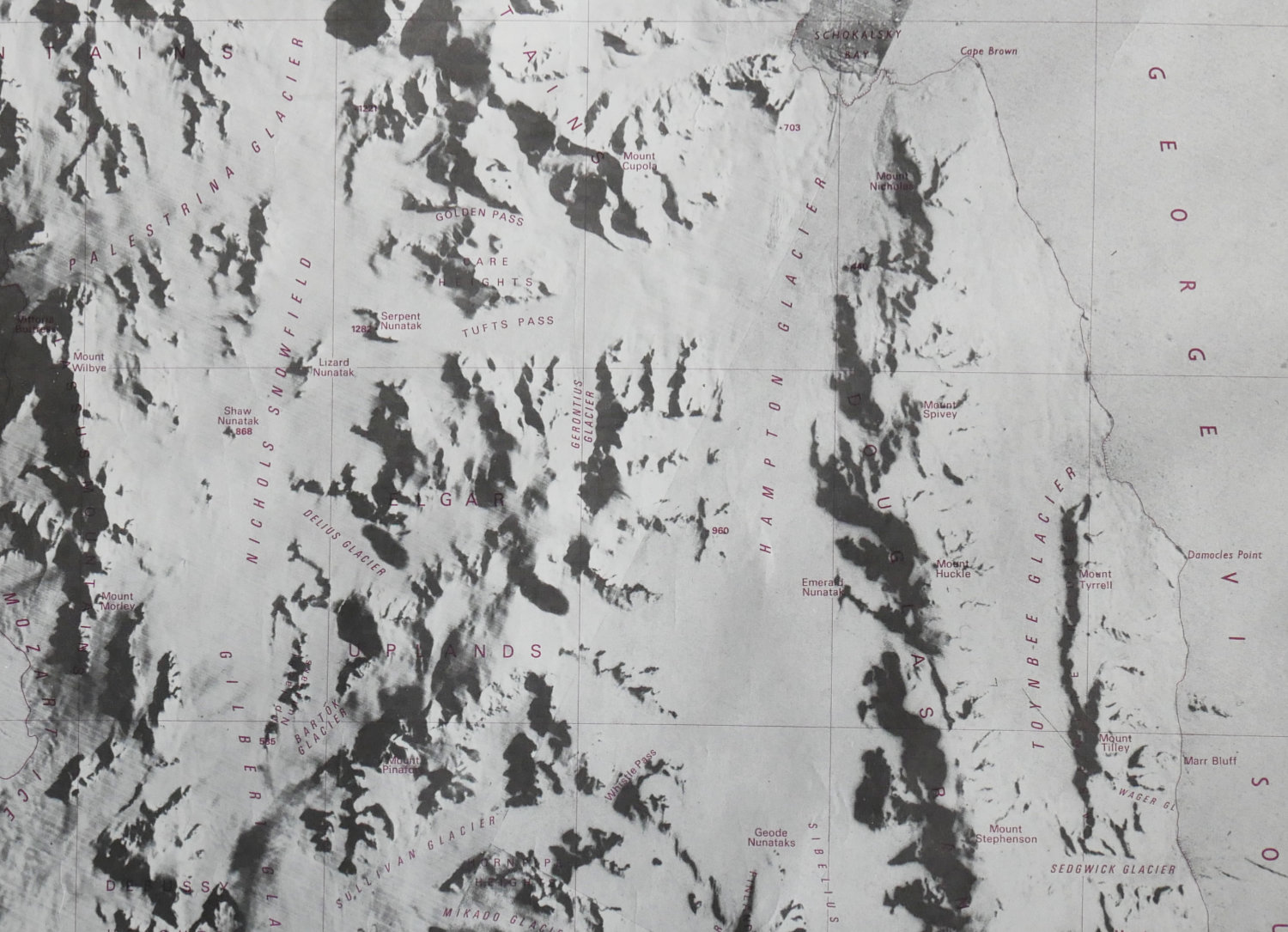
Penguin Diplomacy - the
life story of Brian Roberts
The man behind the Antarctic
treaty
Maps and place namesTo an aspiring Whitehall civil servant, an instruction to serve on the interdepartmental Antarctic Place Names Committee probably sounded like the death knell to one’s career – as the Colonial Office’s John Bennett discovered to his cost. But to Brian Roberts, as a Foreign Office ‘outsider’ and part-time employee it was a unique position from which to worm-hole his way into some position of influence in an otherwise impenetrable fortress. Indeed it was Roberts himself who restarted the Committee in 1945 and remained its secretary until his retirement.
Roberts was meticulous over maps, names and ice terminology. It was a lifelong obsession that often drove his friends and adversaries alike to exasperation. But to him precision in naming was vital. At the start of his Foreign Office career the map of Antarctica was a mess, riddled with inaccuracies and naming of geographical features that was often conflicting, disputed, confusing or simply inaccurate. To Roberts the name itself was unimportant; its sole function was to identify a feature uniquely and unambiguously. Few of us are able to accept naming with such detachment. But Roberts’ persistence was eventually rewarded with considerable credit for his painstaking efforts to get place names agreed and formally adopted. The reader will probably be relieved to know that the several thousand pages of correspondence in the SPRI archives to do with Antarctic place names have been condensed in our account to a few paragraphs.
The frequent tendency to name places, institutions, roads etc. (quite apart from erecting statues) after a human individual as a means of commemorating them was generally not favoured by Roberts – so much so that he resisted others’ efforts to name an Antarctic feature with the name Roberts. His antipathy to the use of names as a means of commemorating individuals was well-founded. At the time of completing this biography it has become apparent that one generation’s reverence for a particular individual may not necessarily be shared by the next generation. Indeed any connotations of colonialism, empire, racism, slavery or other brutal treatment of living beings associated with individuals may in time cause him (they are almost always male) to be regarded with contempt and disgust, something that would probably have been baffling to the original perpetrators of the commemoration.
It takes a biologist to recognise that the long-term survival of a species or any form of entity depends on its ability to adapt to changing conditions, be they environmental, climatic, political or social. The trouble with names is that once they have been given, one is stuck with them, and it can take a legal challenge or a politically-loaded manoeuvre to change them. There have been occasions however when a name change is not only apposite and uncontroversial, but enables society to move forward without necessarily being laid open to the charge of ‘obliterating history’. A case in point is the change in 1962 from the Falkland Islands Dependencies Survey to the British Antarctic Survey, whereby BAS was able not only to airbrush out its Colonial Office past but acquire an all too rare symbol of prestige and pride for a nation that had lost its empire and its perceived role in life.
Roberts was quite amenable to changing names if he felt that there was good reason to do so. The classic case, highlighted in one of the chapters of the book, concerned his wish to rename the ‘Great Ross Barrier’ to ‘Ross Shelf Ice’, a move vehemently opposed by the more traditionalist voices in the polar community. Viewers of Yes Minister will appreciate that what might otherwise appear to be a rather dry subject can be enlivened by the controversies that it generates between human beings with strong views. Roberts’ Whitehall years in Part II of the book illustrate this on many fronts, and there is even a spy story along the way to spice things up.
The problem that Roberts was up against in the Antarctic was the sheer number of unidentified or wrongly labelled geographical features that needed names. He got around this by means of ‘group naming’, naming a large number of features in a region with names associated with a particular topic, such as names of explorers, scientists, artists or whatever. This is the origin of the appearance of musical items and composers’ names on Alexander Island. Not everyone was comfortable with this idea, but Roberts pursued it with his customary zeal and was immensely proud of the result, presenting copies of the maps of Alexander Island to his musician sister-in-law Lilian who had provided him with several of the names.
|
All images on this website are the copyright |
